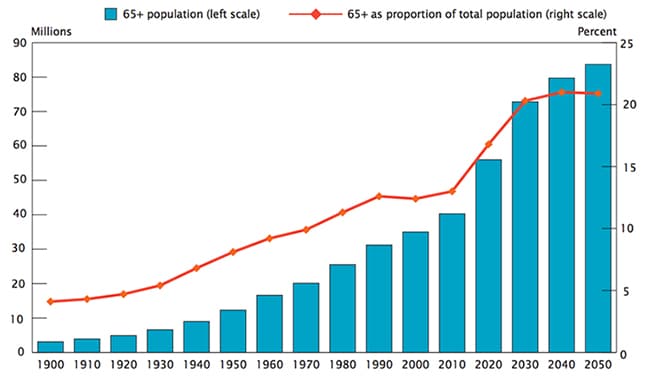
Learn More
Chicago Nursing Home Abuse Lawyers
Get Compensation for a Nursing Home Abuse or Neglect Case in Chicago
The elderly population is growing rapidly as baby boomers reach advanced years. Nursing homes are already crowded, staff is stretched thin and budgets are tight. These problems will only worsen as the nation’s population ages.
Unfortunately, all these factors lead to improper supervision, both of residents and staff, insufficient staff training, inadequate pay and shortcuts in elderly care. As a result, there has been, and will continue to be, an increase in number of serious injuries due to nursing home abuse and neglect in Chicago and throughout Illinois.
Increasing elderly population in the United States, Past and Projected

Source: U.S. Census Bureau, P23-212, 65+ in the United States: 2010
One out of every eight Illinois residents is over the age of 60. Since 2000, the state’s senior population has grown from 1.9 million to 2.5 million. It now represents 19.6 percent of the population in Illinois. By 2030, Illinois is projected to experience a 76 percent increase in the number of people aged 65 to 74; an 80 percent rise in the population of those aged 75 to 84; and a 65 percent growth in residents over 85 years of age.
As many as 5 million elders nationwide are thought to suffer abuse each year. One study reported that around 24 percent of nursing home residents have experienced at least one instance of physical abuse. However, the figure is thought to be higher as many cases of elder abuse go unreported.
Free Consultation with a Nursing Home Abuse Lawyer ― Calls Answered 24/7 – Se habla español




SEEN ON:







